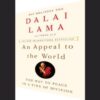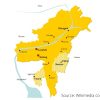Top-ranked Schools of West Bengal
The eastern seaboard state of West Bengal (pop.91 million), currently witnessing a political battle royale between the Trinamool Congress and BJP, is India’s sixth-largest economy with GDP projected at Rs.13.14 lakh crore in 2019-20.
The state’s admin capital Kolkata (pop.14.5 million), formerly Calcutta, is a cosmopolitan metro which served for several years as the capital of British India resulting in the promotion of British-style K-12 and higher education institutions in the state. Unsurprisingly, over the years, Kolkata and the tier II-III cities of Darjeeling, Kurseong and Siliguri have emerged as major education hubs hosting some of the country’s top-ranked day, day-cum-boarding and residential schools (La Martiniere Boys/Girls, Kolkata; Loreto Convent, Darjeeling; DPS, Siliguri; Himali Boarding School, Kurseong). Moreover, the state hosts 33 private and state government universities, one Central university, two deemed universities and nine institutes of national importance.
With the CPM-led Left Front government which ruled the state uninterruptedly for 34 long years (1977-2011) throttling private industry and investment, West Bengal suffered severe industrial neglect, and consequently agriculture is the mainstay of the economy. Rice, potato, jute, sugarcane and wheat are the state’s Top 5 commercial crops with the northern belt producing the globally famous Darjeeling and other high-quality teas. The Durgapur-Asansol belt hosts a number of steel plants of the public sector Steel Authority of India including Durgapur Steel Plant and Indian Iron and Steel Company, Burdwan. Manufacturing industries include engineering products, electrical equipment, cables, steel, leather, textiles, jewellery, frigates, automobiles, railway coaches and wagons.
Himali Boarding School Kurseong

















Add comment